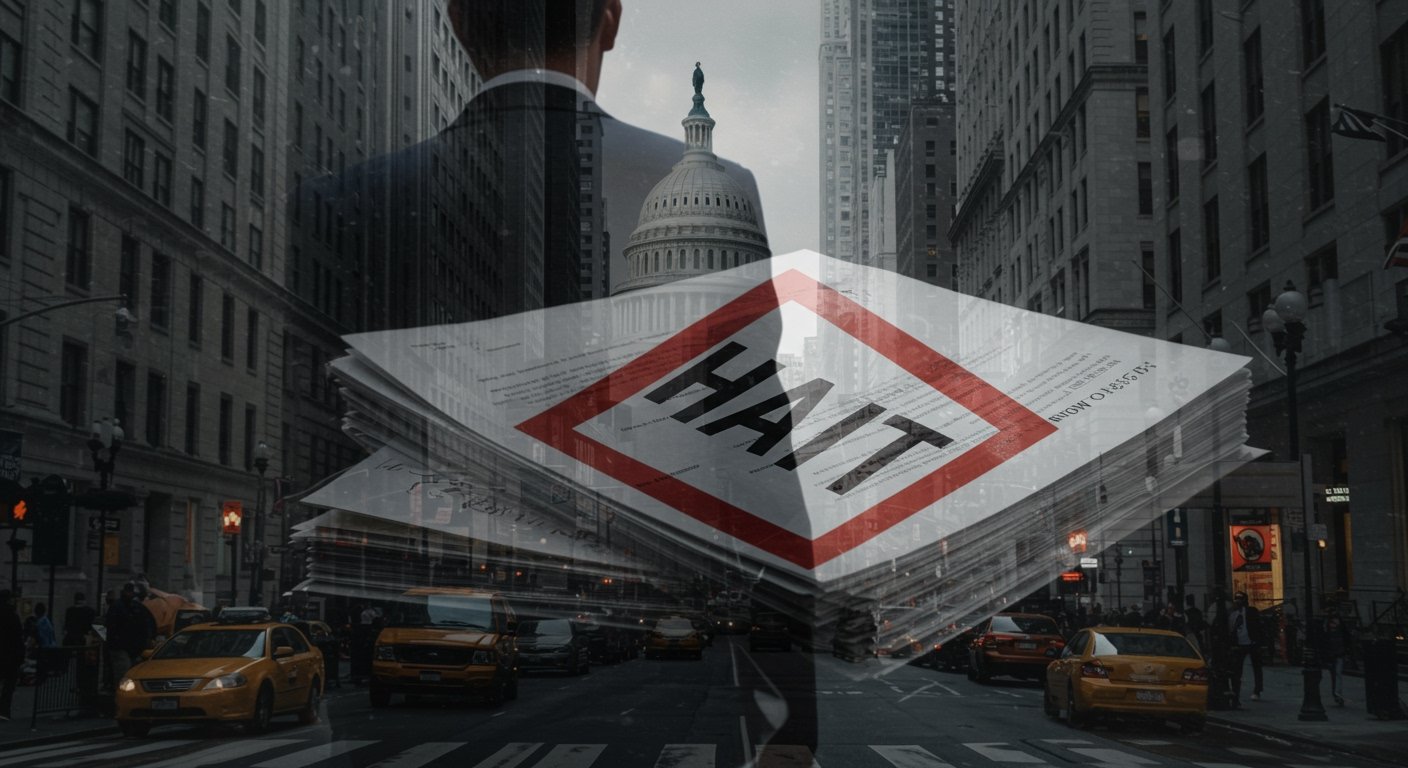NEW YORK – In a move signaling a potential escalation of the Trump administration’s approach to student activism, Immigration and Customs Enforcement (ICE) agents arrested Palestinian activist Mahmoud Khalil, a permanent U.S. resident and former student at Columbia University, in New York on the night of Saturday, March 8, 2025. The arrest, as reported by AP News and RBC-Ukraine, comes amid a broader crackdown targeting student-led protests, particularly those related to the conflict in Gaza.
Khalil, who holds a green card and completed his studies at Columbia University in December, was taken into custody at his apartment. The circumstances surrounding his detention immediately raised questions regarding his status. Initially, his lawyer, Amy Greer, stated that ICE agents claimed they were revoking his student visa under State Department orders. However, agents later indicated they were moving to revoke his green card status, a significant shift in legal action.
Official Justification and Administration Policy
The Department of Homeland Security spokesperson, Tricia McLaughlin, confirmed Khalil’s arrest, framing it as an action supporting President Trump’s executive orders prohibiting anti-Semitism. McLaughlin alleged that Khalil had “led activities aligned with Hamas, a designated terrorist organization.” This justification links the arrest directly to the administration’s policy directives concerning campus speech and activism.
Activist’s Role and Targeted Status
Mahmoud Khalil was a prominent figure in the student protests at Columbia University against Israel’s actions in Gaza. He served as a key negotiator between demonstrating students and university officials, a role that gained him public attention and, according to reports, made him a target of pro-Israel groups. These groups reportedly pressured the government for his deportation, highlighting the political dimensions surrounding the case.
His status as a permanent U.S. resident with a green card makes this case particularly notable. It is reportedly the first known instance of a legal permanent resident being targeted under what is described as Trump’s new policy regarding students involved in pro-Palestinian demonstrations. This marks a potential expansion of immigration enforcement beyond non-immigrant visa holders to individuals with established legal residency.
Legal Experts Raise Concerns
The detention of a green card holder without apparent criminal charges has drawn sharp criticism from legal experts and civil liberties advocates. Camille Mackler, founder of Immigrant ARC, voiced significant concerns, describing the detention as a “drastic escalation.” Mackler and others suggest the action could be a retaliatory measure targeting Khalil for his role in the protests and his exercise of protected speech rights. The legal implications of using immigration status to penalize political activism, especially for permanent residents, are under intense scrutiny.
Legal Challenges and Public Response
Following their detentions, Mahmoud Khalil and Mohsen Mahdawi, another student activist, have challenged their arrests through legal means, including filing habeas corpus petitions. These petitions ask courts to examine the legality of their detentions, setting the stage for potential legal battles over the scope of immigration enforcement authority in the context of political dissent.
The arrests have also sparked public demonstrations. On March 10, 2025, protests demanding the release of both Khalil and Mahdawi took place outside the ICE field office in Lower Manhattan. These demonstrations underscore the level of concern within activist and civil liberties communities regarding the administration’s actions and their potential chilling effect on free speech and assembly on college campuses.
Broader Implications
The arrest of Mahmoud Khalil is seen by many as a significant development in the ongoing tension between freedom of speech on university campuses and government efforts to address perceived anti-Semitism and activities deemed sympathetic to designated terrorist organizations. As legal challenges unfold and public debate continues, the case is likely to have lasting implications for the rights of permanent residents and the boundaries of political activism in the United States.












